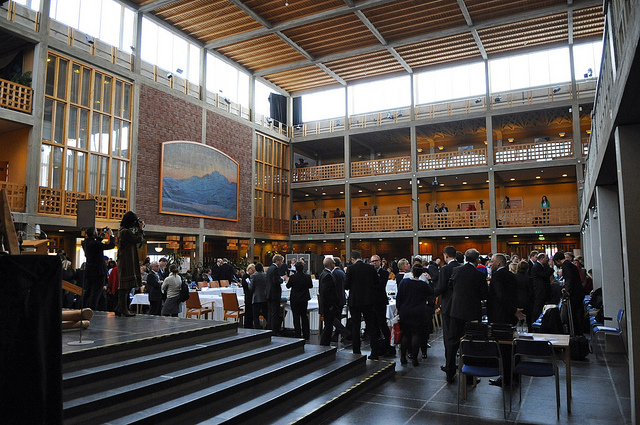In a 2002 study and national poll, sociologist Kitty Calavita found that in southeastern Europe over 60% of respondents believed immigrants were responsible for increases in crime rates. A survey conducted in Italy found that 57% of Italians agreed that increased immigration resulted in an increase in crime. Finally, a study that focused on the intersections between media, immigration, and crime discovered that 78% of newspaper articles and 57% of TV reports that focused on immigration in southern Italy also focused on crime. As these examples demonstrate, there is a direct relationship between media representation and popular opinion about immigration. What follows is an analysis of immigration and crime, and in particular, I focus on how political myths create negative stereotypes of immigrant communities and how these myths can negatively influence social and cultural ties in both national and international contexts. The story that follows seems like a local episode, pertinent to only the Italian-Canadian community; however, the story demonstrates the consequences of political myths and stereotypes that surround immigration.
The Italian-Canadian Community and the Harper Government
[captionpix align=”left” theme=”shadow” width=”300″ imgsrc=”http://natoassociation.ca/wp-content/uploads/2014/03/italy-e1394209052718.jpg”]
On 29 January 2014 Michael Tibollo, past President of the National Congress of Italian Canadians (NCIC) received a call from a journalist at the Corriere Canadese and was asked to comment on an article called “Governo Harper: Italia Paese Pericoloso” (“Harper Government: Italy, A Dangerous Country”), written by the Editor-in-Chief Francesco Veronesi. The article reflected on the Canadian travel advisory to Italy, which at the time advised travelers to “exercise normal security precautions – there is no nation-wide advisory in effect for Italy.” The Canadian travel advisory to Italy also provided a security update to “enable you [the Canadian citizen] to make well-informed decisions” when traveling abroad. The information update for Italy consisted of travel advice on street crime (pickpocketing, purse snatching) and potential episodes of violence (including possible bomb attacks by organized extremist groups). Based on this information, Veronesi concluded in his article that the Canadian government under Harper perceives Italians as uncivilized and dangerous (or in other words, that the Harper government thought that Italians are inherently criminal). Veronesi used this conclusion to justify his generalization that there has been a halt on accepting Italian immigrants into Canada.
Myth-Making and political control
We can turn to the idea of myth and its social usage to understand the consequences that such an article might have on Canadian politics. In simple anthropological terms, a myth can be something that is untrue and that explains a certain phenomenon. Therefore, myths can be deployed by leaders of cultures or groups to inculcate in their people specific views and attitudes toward the world. With that said, the Corriere Canadese has attempted to shape Italian public opinion to believe that the Canadian government harbours negative views of Italians. To do this, the Corriere Canadese seized on the popular political myth that immigration is linked to high crime rates, and claimed that the current government holds this view (creating a new myth). The newspaper made this maneuver to create disapproval of the Harper government from the Italian-Canadian community.
Veronesi’s claims, whatever his intentions, create an unbalanced view of the Harper government. He equated his interpretation of the Canadian travel advisory for Italy to Italian immigration in Canada, arguing that the tightening on immigration has a relationship to the advisory. Tibollo was appalled by the article and its representation of Italians. In a letter requesting an apology by the Corriere Canadese he claimed that the Corriere Canadese’s suggestion that the Canadian government perceives Italians as being both criminal and barbaric is deeply offensive to all Italians. In the letter Tibollo outlined that “I researched travel advisories going back in time. In 2004, when we had a Liberal government, much to my surprise and dismay, the language of the travel advisory was virtually identical. I also looked at 2005 and it was the same.”
The Corriere Canadese’s over-interpretation of the travel claims aimed to inculcate negative feelings about the government of Canada in Italian-Canadian citizens. The Corriere Canadese mobilized a problematic image of Italians and of the Canadian government to create political support, with little regard for whether or not the facts were true. In order for international relations between Canada and Italy to flourish, national governments need to trust and be trusted by their citizens. The spreading of false information can negatively impact citizens’ everyday lives. False reporting takes advantage of democratic freedoms and public’s trust. The case of the Corriere Canadese in the Italian Canadian community is a very simple example of political-myth creating negative cultural stereotypes.




